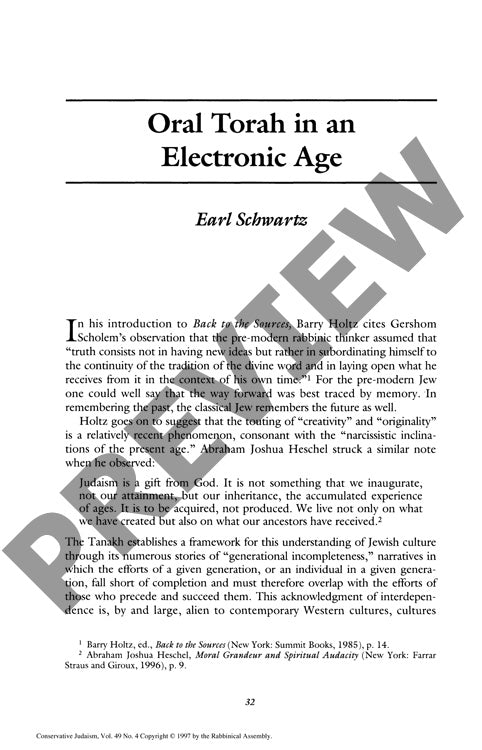Oral Torah in an Electronic Age
Couldn't load pickup availability
The living presence of a teacher, essential to authentic Jewish oral tradition for millennia, faces a profound challenge in the digital age. Drawing on philosophical insights from Plato's *Phaedrus* and Werner Kelber's analysis of oral versus written gospels, this research traces how Jewish textual transmission evolved from its oral foundations through medieval codification to modern digitization. Through comparative analysis of classical rabbinic sources, philosophical texts, and contemporary scholarship, the investigation reveals how different transmission methods shape both understanding and community formation. While medieval written works like the *Shulhan Arukh* marked a significant departure from pure oral transmission, they maintained crucial elements of human presence through teacher-student relationships that sustained rabbinic authority and cultural continuity. Contemporary electronic media, despite unprecedented advantages in accessibility and speed, fundamentally lack this vital human dimension integral to Torah sheh-b'al peh (oral Torah). Although digital formats effectively store and disseminate information, they cannot replicate the living memory transmitted through direct human relationships. These findings highlight a critical distinction between information storage and authentic memory in contemporary Jewish education, suggesting that genuine oral Torah requires irreplaceable face-to-face encounters.

More Information
-
Physical Description
-
Publication Information
Published 1997
ISBN
-
Publication Credits
Earl Schwartz

